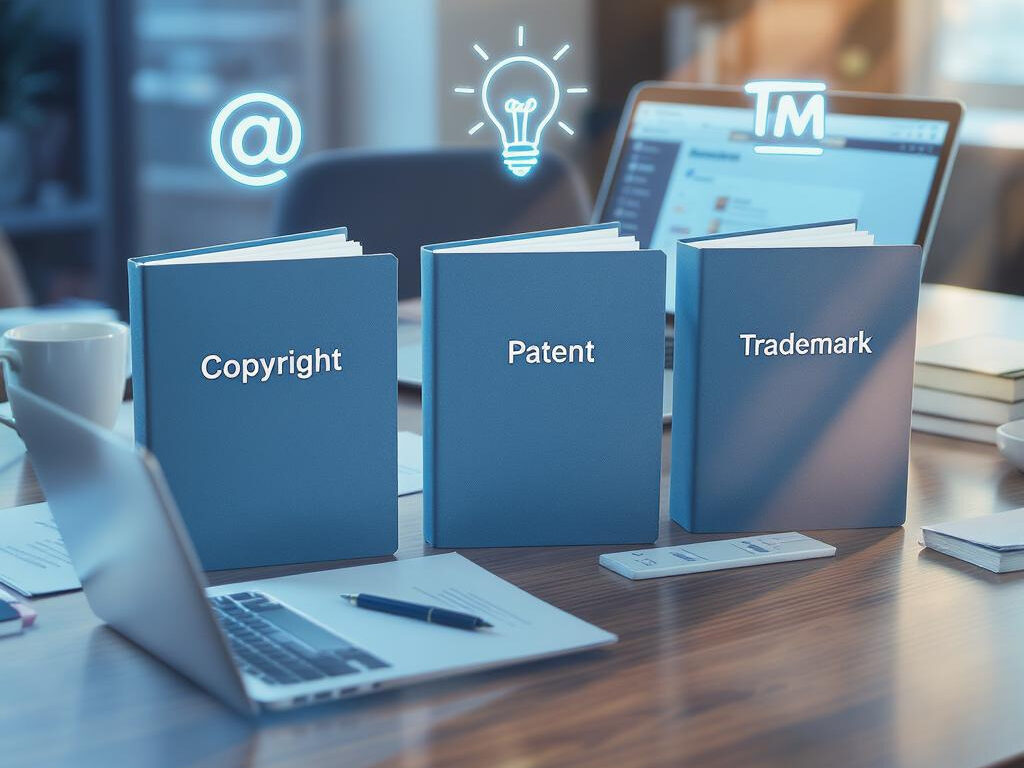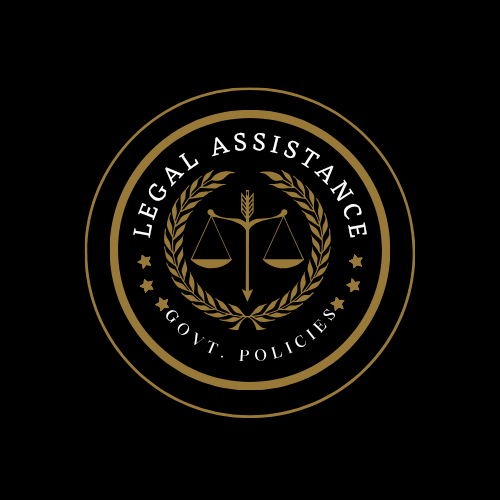What is Intellectual property rights
Intellectual Property Rights (IPR) are legal protections granted to creators for their inventions, artistic works, designs, symbols, and brand names. These rights—such as copyrights, patents, and trademarks—allow individuals and businesses to control and benefit from their original creations, encouraging innovation and creativity.

Introduction
In a global wherein ideas, innovation, and creativity drive commercial enterprise, protective your paintings is vital. If you’re an entrepreneur, artist, creator, designer, or product developer, you’ve likely heard phrases like copyright, patent, and trademark. Even as these terms are often used interchangeably, they consult with very exceptional sorts of prison protections. Each of those intellectual property (IP) gear serves a specific motive. This text will spoil down what they’re, how they differ, and when you ought to use every to guard your work or brand.
What is Intellectual Properties?
Highbrow property refers to creations of the mind—together with innovations, works of artwork, names, emblems, designs, or approaches—that may be legally included. Those protections supply creators one-of-a-kind rights to benefit financially and manipulate how their creations are used. The 3 primary styles of IP safety encompass:
- Copyright
- Patent
- Trademark
Allows explore each one in detail.
Copyright: Safety for Innovative Works
Copyright protects unique innovative works from being copied or used with out permission. It applies mechanically while the paintings is created and recorded in a tangible form inclusive of writing, video, or code.
What Copyright Covers:
- Books, articles, poems
- Music and lyrics
- Movies, television suggests
- Paintings, images
- Software program code
- Blogs and websites
Rights Granted:
Copyright offers the author the special proper to:
- Reproduce the paintings
- Distribute copies
- Carry out or show the work
- Make variations or spinoff works
Duration:
In maximum nations, copyright lasts for the writer’s existence plus 60 to 70 years. After that, the paintings enters the general public domain.
Example:
If a photographer captures an original photo, nobody else can use or promote that photograph without permission.
Registration:
At the same time as copyright safety is computerized, registering it with a copyright workplace offers criminal evidence of possession and strengthens your function in court if infringement happens.
Patent: Safety for Innovations
Patent safety is granted to inventors of latest, beneficial, and non-apparent innovations. It affords the right to exclude others from making, using, or selling the discovery for a specific time period.
What Patents Cowl:
- New machines or gadgets
- Commercial tactics
- Medical improvements
- Software algorithms (in a few cases)
- Chemical compositions
Styles of Patents:
- Software patents for innovations and tactics
- Design patents for decorative or particular designs
- Plant patents for new plant species developed thru asexual duplicate
Length:
- Software and plant patents normally remaining 20 years
- Layout patents normally closing 15 years
Instance:
A tech agency invents a new wearable health-monitoring device. A patent might prevent competition from making or promoting a comparable device.
Registration:
Patents ought to be filed and accepted by using the relevant country wide authority—consisting of the USPTO (inside the USA) or the Indian Patent Office. The procedure is technical and might take years, often requiring expert legal assist.
Trademark: Safety for Brands
A trademark protects names, trademarks, symbols, and terms that distinguish a organization’s items or offerings from others. It facilitates clients pick out and trust a selected emblem.
What Trademarks Cowl:
- Brand names (e.g., Amazon, Adidas)
- Emblems (e.g., the Nike swoosh)
- Slogans (e.g., “Just Do It”)
- Product packaging
- Sound marks (e.g., Intel’s chime)
Rights Granted:
Trademark owners can:
- Use the mark solely in trade
- License it to others
- Prevent others from using similar marks
Duration:
Trademarks can final indefinitely so long as they’re utilized in enterprise and renewed periodically—normally every 10 years.
Instance:
A apparel startup creates a logo call and brand. Registering the trademark prevents different groups from the use of the equal name or a confusingly comparable one.
Registration:
You may sign up logos thru country wide offices like the USPTO or India’s Trademark Registry. Unregistered emblems offer restrained rights, but registered emblems provide broader protection and felony advantages.
Brief Contrast Desk
| Feature | Copyright | Patent | Trademark |
|---|---|---|---|
| Protects | Creative works | Inventions/processes | Brand identity |
| Registration | Not required | Mandatory | Recommended |
| Duration | Life + 60–70 yrs | 15–20 yrs | Unlimited (with renewal) |
| Authority | Copyright Office | Patent Office | Trademark Office |
| Example | Book, song | Medical device | Logo, slogan |
Deciding on the Proper Safety
Selecting the proper shape of highbrow assets protection depends on what you’ve created.
- Use copyright in case you’re an creator, musician, dressmaker, software developer, or digital content writer.
- Use patents if you’ve invented some thing new like a product, tool, or method.
- Use emblems if you’re establishing a enterprise brand, launching a product, or offering services beneath a unique name.
In a few cases, multiple varieties of safety may also follow.
For example, in case you expand a telephone app:
- The code and consumer interface may be copyrighted
- A unique set of rules used can be patented
- The app name and icon can be trademarked
Common Myths and Misunderstandings
Many human beings mistakenly trust one form of IP safety covers all aspects of their creation. Here are a few commonplace myths:
- Delusion 1: Copyright protects my commercial enterprise name.
No, names and symbols are protected by using trademark, no longer copyright. - Delusion 2: A patent lasts for all time.
Patents expire after a hard and fast range of years and can’t be renewed beyond that length. - Delusion 3: I do not want to sign up a trademark if I am already the use of it.
The usage of a call does offer restricted rights, but registration offers you stronger criminal manage.
Why IP Protection Is Vital
Right IP protection offers a couple of benefits:
- Legal rights to sue for infringement or misuse
- Logo control that enables construct reputation and patron loyalty
- Financial possibilities through licensing, sales, or funding
- Marketplace benefit by means of preventing competition from copying your paintings

If you don’t defend your intellectual assets, others can exploit them—sometimes legally—leaving you with little recourse.
How to Relaxed Your IP Right
| Step | Instruction |
|---|---|
| 1 | Pick out what you’ve created – Is it an invention, innovative work, or logo? |
| 2 | Look for conflicts – Use government databases to check for existing copyrights, trademarks, or patents. |
| 3 | Apply thru the right channel – Document your application with the relevant countrywide workplace. |
| 4 | Put in force your rights – Monitor for infringement and take action when needed. |
| 5 | Renew as needed – Maintain your IP lively via everyday upkeep and renewals. |
Here’s how you could start defensive your paintings:
- Pick out what you’ve created – Is it an invention, innovative work, or logo?
- Look for conflicts – Use government databases to check for existing copyrights, trademarks, or patents
- Apply thru the right channel – Document your application with the relevant countrywide workplace
- Put in force your rights – Monitor for infringement and take motion while wanted
- Renew as needed – Maintain your IP lively via everyday upkeep and renewals
Trusted Sources
- USPTO – U.S. Patent and Trademark Office: www.uspto.gov
- WIPO – International Highbrow Belongings Enterprise: www.wipo.int
- Indian IP Office: www.ipindia.gov.in
- Copyright Office of India: copyright.gov.in
Conclusion
Expertise the distinction between copyright, patent, and trademark is more than only a legal formality—it’s a commercial enterprise necessity. These gear guard your thoughts, help you monetize your work, and safeguard your emblem from competition.
Whether or not you’re launching a product, designing a emblem, or writing a ebook, deciding on the right protection offers you peace of mind and a strong prison basis for boom. Don’t wait until your work is copied—defend it from the beginning and construct your future with self belief.
Related Read:
- Best Online Legal Document Platforms 2025
- 5 Reasons to choosing Rocket lawyer or Legalzoom for you
- How to Register Your Business Online in India
